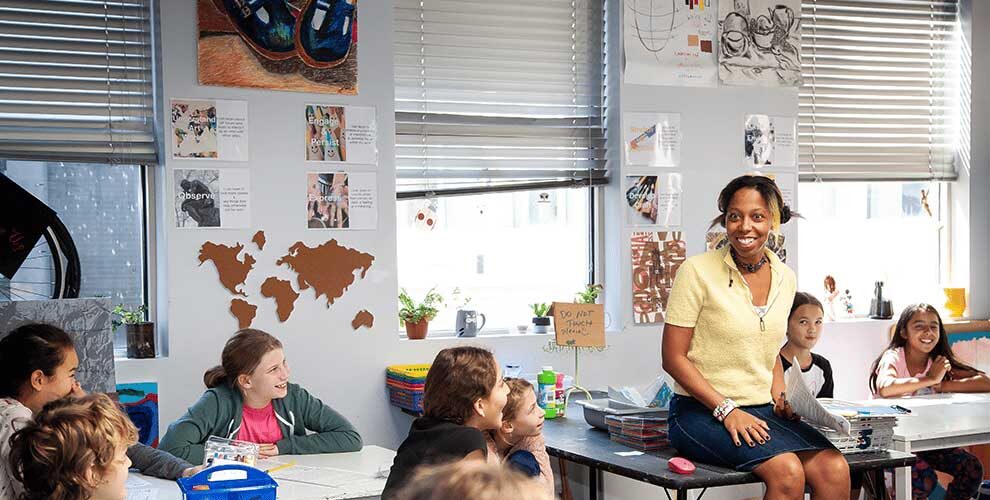Celebrating International Day of Education
January 24, 2024 is the sixth annual International Day of Education.
This day of observance was established in 2018 by the United Nations General Assembly to celebrate the role that education plays in creating a better world. It has been observed every 24th of January from 2019 onward.
In honor of International Day of Education, let’s take a closer look at the importance of bringing equitable, quality education to all.
What is the theme for International Day of Education in 2024?
Every year, the United Nations declares a theme for International Day of Education. For 2024, the theme is “learning for lasting peace.” The concept is built on the idea that through education, individuals are equipped with the knowledge, skills, and behaviors necessary for bringing peace to their communities.
How does education benefit communities worldwide?
Education plays an important role in the UN’s mission of building sustainable and resilient societies across the globe. In 2015, the UN adopted the 2030 Agenda for Sustainable Development. This agenda laid out numerous Sustainable Development Goals, one of which is to make quality education available to all.
Education helps individuals gain the knowledge and skills needed to tackle important societal challenges, such as:
- Improving health outcomes
- Eliminating poverty
- Promoting gender equality
- Improving environmental sustainability
- Enhancing international cooperation
On a smaller scale, education enables individuals to create a better life for themselves. It allows them to get jobs, increase their economic security, and stay healthy.
What’s the current state of global education?
Education is a human right. The Universal Declaration of Human Rights—a milestone document drafted by the UN in 1948—states that elementary education should be free and compulsory.
However, millions of children today still do not have access to education.
According to estimates from UNESCO, 250 million children are out of school worldwide. This number has increased since UNESCO’s last report, due in part to the exclusion of girls from education in Afghanistan.
The global completion rate for education is lacking, too. Worldwide, 87% of children complete primary school education, 77% complete lower secondary education, and 59% complete upper secondary education. While progress is slowly being made to improve these numbers, some regions still have much lower completion rates than average. In sub-Saharan Africa, for example, only 27% of children complete upper secondary education.
How parents can observe International Day of Education 2024
International Day of Education 2024 is all about using education as a tool to address and prevent conflict.
This International Day of Education, talk to your kids about what makes education so important. Explain that in many parts of the world, children do not have access to high-quality education. UNESCO’s “SDG Resources for Educators” features lesson ideas and videos centered around this topic. While these resources were designed with educators in mind, they can be used for at-home learning, too!
To tie things back to this year’s theme, check out this list of children’s books about peace. What strategies do the characters in the books use to reduce conflict and promote peace?
You can also think about ways to advocate for education within your community. Are there local education-focused initiatives you can donate to or spread the word about? Are there opportunities for you to get more involved with your child’s school?
BASIS Charter Schools are committed to making world-class education accessible to all
At BASIS Charter Schools, we believe that every student, no matter where they live or what their background is, deserves the best education possible. We are committed to raising the standards of student learning to the highest international levels through our transformative K–12 academic program.
Results from the OECD Test for Schools (based on PISA), an exam taken by students in more than 70 countries, show that BASIS Charter School students outperform their peers both at home and abroad. We are proud to offer an education that exceeds many of the best school systems worldwide—and we do it all at no cost to our families. Our public charter schools are completely free to attend and open to all.
The BASIS Charter Schools network is made up of 39 schools across Arizona, Louisiana, Texas, and Washington, D.C. Read more about our awards and rankings to find out what makes us the #1 choice for K–12 education. To see for yourself what makes our schools so unique, find a school near you and RSVP for a tour.
- BASIS Charter Schools: #1 Once Again! - April 23, 2024
- Introducing BASIS DC’s New Head of School, Calvery Cooper - April 10, 2024
- How BASIS DC’s House System Fosters Teamwork and Community - April 9, 2024



